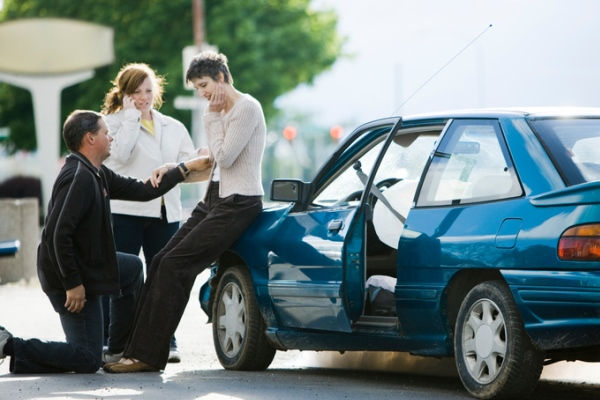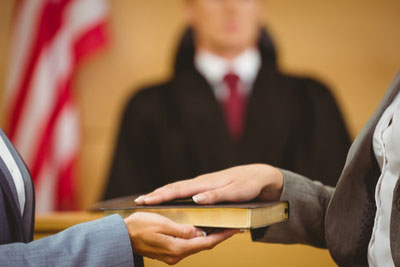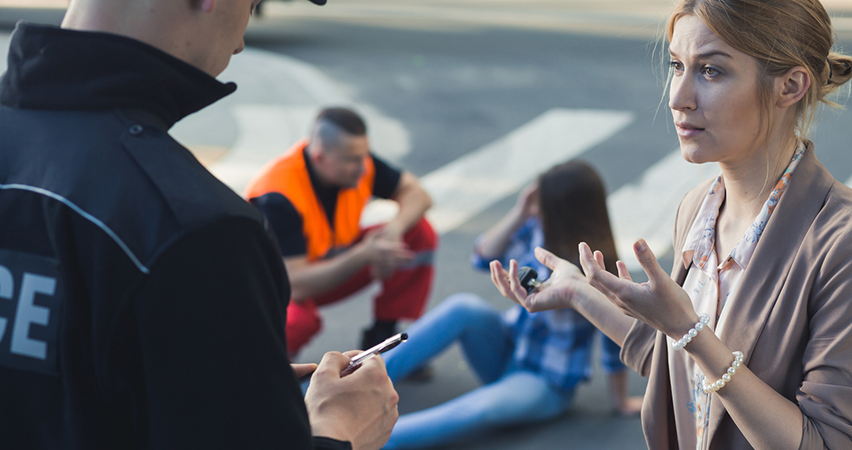Being an eyewitness might seem like a hassle, but what it does for the people involved in a car accident can sometimes be invaluable. As an experienced Sacramento car accident lawyer, we understand the concerns about being a witness, and the value. We have put together information on what to do if you witness a car accident, and your duties and responsibilities, should you decide to become involved.
Figuring out fault when two cars are involved in an accident is may not be that difficult in some cases. However, when there are pedestrians involved, multiple cars, or even if one driver is claiming that the other is partially responsible and negligent, it can become more complicated to figure out who is responsible for paying for the resulting damages and injuries.
What to Do If You Witness a Car Accident?
Where negligence is questionable, one of the best tools that a driver has at their disposal is eyewitness accounts. The drivers involved only had the perspective of what they were doing before the accident, so their recollections might conflict. A third party who was present and watched the actions of both drivers might be a more impartial witness and one who can better provide details about what lead up to the accident.
Should You Get Involved?
Most witnesses don’t want to get involved because they are concerned that they might be hassled, or even worse, be summoned to court to tell what they saw. Many folks do not know what to do if you witness a car accident. If you are considering being a witness, the good news is that if the case should go further or become too much, you can let your statement stand instead of being taken in to court.
The reality is that not many auto accidents ever see a courtroom. Most are settled well before that point in the negotiation phase. Typically, witness accounts are written statements that bystanders give to the police, which are in the report and stand for themselves without the witness ever having to be contacted.
Witnessing a serious car accident can be traumatic. In the aftermath, people may wonder whether they have legal obligations and how best they can help those involved in the accident. Some witnesses may feel compelled to render assistance, but may be worried that they could be held liable for any injuries that may result. The good news is that unless they caused the accident, witnesses who have attempted to help in good faith cannot be prosecuted for subsequent harm. This article provides some information on what to do if you witness a car accident.
Fortunately though, the State of California has “Good Samaritan” laws that protect people from lawsuits should something go awry and you accidentally cause harm.
Per the Health and Safety Code, DIvision 2.5, Emergency Medical Services [1797-1799.207],
“(a) No person who in good faith, and not for compensation, renders emergency medical or nonmedical care at the scene of an emergency shall be liable for any civil damages resulting from any act or omission. The scene of an emergency shall not include emergency departments and other places where medical care is usually offered. This subdivision applies only to the medical, law enforcement, and emergency personnel specified in this chapter.
(b) (1) It is the intent of the Legislature to encourage other individuals to volunteer, without compensation, to assist others in need during an emergency, while ensuring that those volunteers who provide care or assistance act responsibly.
(2) Except for those persons specified in subdivision (a), no person who in good faith, and not for compensation, renders emergency medical or nonmedical care or assistance at the scene of an emergency shall be liable for civil damages resulting from any act or omission other than an act or omission constituting gross negligence or willful or wanton misconduct. The scene of an emergency shall not include emergency departments and other places where medical care is usually offered. This subdivision shall not be construed to alter existing protections from liability for licensed medical or other personnel specified in subdivision (a) or any other law.”
Good Samaritans Save Lives
Of course you have no duty or obligation to assist victims of an accident, the fact is that Good Samaritans save lives. Recently in Zamora, Ca, a woman was trapped in a burning vehicle after an accident and an off-duty state trooper stopped to try to pull her out, without success. Another man – a regular civilian – then stopped to help and he and the officer were able to successfully pull the victim out of further harm’s way.
The officer commented, “Without [the Good Samaritan’s] help, there was no getting her out of that vehicle. He was instrumental in helping me take her out of that vehicle and to me he’s the true hero in all of this.”

What to do if You Witness a Car Accident– Steps to Take
1. Protect Yourself:
If you witness a car wreck, pull over. Be extremely careful, and do not cause another wreck by doing so. Make sure that you don’t put yourself in danger. While it’s good that you want to help someone else, it’s better not to chance danger with fires, flames, or broken glass. And don’t forget: Put on your hazard lights! Becoming another victim will not help anyone, so please carefully consider what to do if you witness a car accident.
2. Activate Emergency Services:
If two cars crashed and there is fire, a fuel or oil spill, downed power lines, or any injuries, immediately call 911. Regardless of the severity of the wreck, the authorities need to know. Tell the 911 operator you’ve witnessed a car accident, and provide the location. When you’re asked, tell the operator any relevant details. The 911 operator can also help guide you through what to do if you witness a car accident.
3. Check on Victims:
Once you’ve ensured that it’s safe to approach the scene, check on the condition of the crash victims to make sure they are okay and offer help, if you are able. While this can be an emotionally taxing time, try to stick to the facts and remember that this is not the time to assess who is at fault for the accident or make judgments on what the other driver must have been thinking. Unless there’s an imminent risk of the vehicle catching fire, or some other hazard that could cause further injury or death, do not under any circumstances move an injured person. Despite your best intentions, you could accidentally make the injury worse. Let the trained medical professionals tend to the injuries, but you can provide comfort by reassuring victims that help is on the way.
4. Stabilize Vehicles if You Can
If the accident is minor, ask the driver to put the impacted vehicle in “park” and turn off the ignition. This will eliminate the risk of fire, especially since chances are good that the crash has caused an oil, fuel or coolant leak. If it’s safe to do so, enlist help to move the car out of further harm’s way and to leave space for other vehicles and emergency responders. If that’s not possible, set up flares or traffic triangles to warn other drivers of the accident.
5. Give Law Enforcement Your Account of What Happened
When the police get to the scene, be forthcoming with relevant details and your contact information. Do not discuss fault with the people in the accident; there could be negative consequences. Only speak about the wreck to the police. If there are any relevant details for medical professionals, let them know, as well.
6. Remain Available for Follow Up
When you leave the scene of a wreck, you may be called on by medical authorities, police officers, or insurance agents. Make sure that you’ve given everyone your contact information, in case you are needed for comment in the weeks following the accident. Don’t change your story, and always be honest.
7. Leave the Scene Safely
After you’ve spoken to the police and given your contact information, it’s time for you to keep on motoring. While witnessing a car accident can be very scary, please make sure to drive safely and with due regard away from the scene. You’ve certainly done your good deed for the day.
Why You Should Be a Witness
 For some accidents, the only way that the insurance company and any involved lawyers can plead their defendant’s case is through the use of tools like eyewitness accounts. If you notice that someone is clearly at fault, then it is the right thing to do to recount what you saw if you see law enforcement at the accident site and they ask you to participate.
For some accidents, the only way that the insurance company and any involved lawyers can plead their defendant’s case is through the use of tools like eyewitness accounts. If you notice that someone is clearly at fault, then it is the right thing to do to recount what you saw if you see law enforcement at the accident site and they ask you to participate.
Being an eyewitness might seem like a hassle, but what it does for the people involved in a car accident can sometimes be invaluable. It can be a huge asset to both the car insurance companies and any involved Sacramento car accident attorneys; and it’s likely the most you will ever be involved is if they call to confirm your testimony. If you are in an accident, it is a good idea to have eyewitnesses testify to what they saw. It could make the difference between being found at fault or being found innocent. By knowing what to do if you witness a car accident, you can help make a positive impact on a negative situation for the victims.
In Conclusion
Automobile accidents can be just as scary to witness as they are to be a part of, but knowing what to do if you witness a car accident ahead of time can make the situation much less traumatic. It’s about how the situation is handled afterwards that will determine how it affects the victims in the future. If you or someone you know has been injured in a car accident due to someone else’s negligence, you may be entitled to compensation. At the Law Offices of Zappettini and Bradley, we strive to ease the pressure placed on victims and offer a completely free consultation and case evaluation. Don’t hesitate to contact us today to discuss your rights and options.

